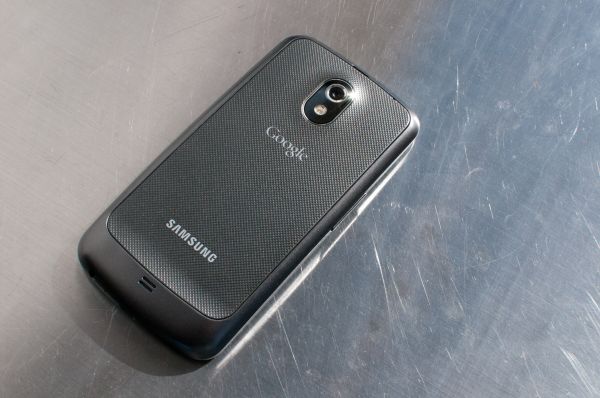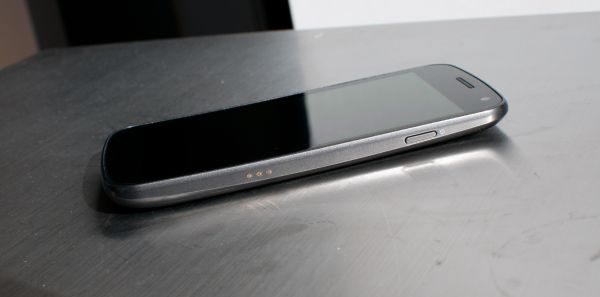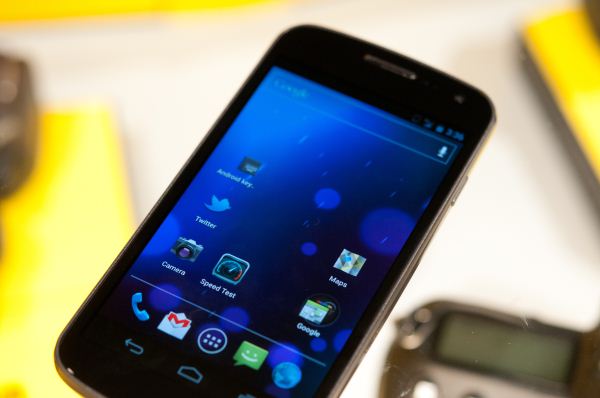Samsung Galaxy Nexus & Ice Cream Sandwich Review
by Brian Klug & Anand Lal Shimpi on January 18, 2012 1:34 PM ESTFor Google, one of the major points of Nexus has always been to provide a stable piece of reference hardware for it to cater a major OS release to. Each device has married a major revision of the Android platform to the latest stable hardware. That isn't to say that the hardware choices are always bleeding edge, but rather modern and logical next steps for the platform. I often read that Android as a platform is plagued by rapid hardware releases and product cycles that leave endless variants of the same hardware for each carrier, and that preloads and skins fragment the experience. While there's some truth to this, it isn't necessarily Google's fault - the software is open source after all. In the case of Android 4.0, this release is about consolidating the tablet and smartphone form factors under one version of Android and negating some talk of the platform's fragmentation.
For Google, each Nexus launch is analogous to Apple's iPhone launch - it's the one time that Google gets to dictate exactly what hardware is coming out, and exactly what software makes it onto that hardware. It is no less significant for Google's platform, either. Thus far there's been one Nexus device released per year, and that hardware gets updates from Google directly - at least until the hardware precludes support.
While the Verizon CDMA/LTE Galaxy Nexus is a bit unique, there's no indication thus far about how long carrier approval will take. The Galaxy Nexus line itself is very interesting - on one side, we have the GSM/UMTS device with pentaband WCDMA support that finally fully detaches the hardware from needing carrier specific versions for each region or carrier on GSM/UMTS networks. This is a dramatic step toward reducing carrier power, turning the networks into dumb pipes, and changing the way US customers shop for devices - exactly what the point was when Google launched the Nexus One. On the other, we have the Verizon CDMA/LTE version which thus far marks the furthest carrier incursion into otherwise untouched Nexus-land.
At this point, the Galaxy Nexus is awesome because of its marriage of Android 4.0 and a number of unique hardware features. I'd go so far to say that the Galaxy Nexus is without question the current best Android device, and with the improvements made in Android 4.0, first party applications and browser are now nearly as smooth as their counterparts in iOS. If OS smoothness was the thing holding you back from Android, 4.0 does a lot to change that. The Galaxy Nexus display is excellent, pentaband WCDMA on the GSM/UMTS model is exclusive only to that device, battery life isn't half bad, instant capture works well, and it has Samsung's newest LTE modem. The downsides are pretty much obvious - the camera is far from awesome, the GSM/UMTS variant has a quiet speakerphone, Samsung is using OMAP4460 at 80% of its maximum clocks, and some Galaxy Nexus displays have more more inhomogeneities than others. There's also the matter of newer 32 and 28nm SoCs that are just over the horizon.
The Galaxy Nexus is so important again because it's the only time Google gets to dictate everything - the hardware, the software, and update timing. There's also the element of freedom, with unlockable hardware out of the box. I find myself wishing that Google had begun its adventure sticking it to the carriers with pentaband WCDMA support like this phone finally has, as that would've been much more successful than the practice of releasing a few different Nexus variants with different bands.
As far as Ice Cream Sandwich is concerned, it really is Android perfected. Everything is smoother, faster and nearly all of our issues with the OS have been addressed. ICS brings Android into 2012 and gives Google a great platform to begin to introduce new features going forward. Android is now very close to UI performance parity with iOS, which eliminates a major tradeoff you had to make in the past. If you were hoping for ICS to be iOS with a Google logo on it, you'll be sorely disappointed. However if you're a fan of Android and just wished it were smoother and more polished, Ice Cream Sandwich is what you've been waiting for.













185 Comments
View All Comments
zorxd - Friday, January 20, 2012 - link
They can have some differences (cache size, memory bandwidth, neon instructions) but the A9 is not an ISA. ARMv7 is.Given that it has the same configuration, an Apple A5 behave the same as a TI OMAP4 or a Samsung Exynos of the same clock speed. I beleive nVidia tegra2 lacks the neon instructions so can be slower in some cases. There is an article on Anandtech about this.
Given that the iPhone 4S is only 800 MHz it is the slowest A9 CPU by far.
pSupaNova - Friday, January 20, 2012 - link
The GPU's on the IPhone uses Tiling so in most GPU rendering tasks it will be a lot faster, However spit lots of Triangles at it and then see how fast it really it is.StormyParis - Wednesday, January 18, 2012 - link
It's not all about performance, at least if you don't do FPS games. The screen on the Nexus is much bigger than on the 4S for example. For me, it's not about performance at all. I went for the GN for its even bigger screen, and that criteria alone was 95% of my decision, the remain 5% being "... and the rest don't suck", and "has xda-dev support'.humancyborg - Wednesday, January 18, 2012 - link
Once you start accelerating the entire interface, performance becomes much more significant than just FPS games. There's a reason Apple uses such a gigantic and powerful GPU in their devices, and it's definitely not only for FPS gamers.Agree with you on the rest, there are other good reasons to buy this phone, just a shame that they skimped here. I have the 4S, GN and Lumia 800 currently and constantly switch around between them.
metafor - Wednesday, January 18, 2012 - link
It doesn't really take a whole lot of resources to render a 2D interface. Just about any ol' GPU with OpenGL ES 2.0 support will do it.About the only thing where the GPU is the limiting factor is rendering 3D games. And even then, most if not the vast majority of games on the market will continue to be written for this level of hardware for at least the coming year.
Honestly, people take benchmarks way too seriously.
doobydoo - Thursday, January 19, 2012 - link
Actually, you're absolutely wrong.In fact, the GPU slowness is cited in this very article for causing slowdowns in situations where no 3D gaming is being done.
Remember, the operating system as a whole is hardware accelerated, so every thing you do - animations, transitions, task switching, etc are carried out by the GPU. With the higher screen, the speed of the GPU becomes even more relevant.
The combination of a high resolution screen and a low powered GPU is a bad combination and materially affects the performance of everything you do on the phone.
zorxd - Thursday, January 19, 2012 - link
Do you remember the iPhone 4? Who complained that the GPU was slow? It was much slower than the SGX540 in the Galaxy S.metafor - Thursday, January 19, 2012 - link
Speculation in an article isn't exactly proof of concept.Alpha blending, panning, compositing are very light tasks for a GPU pipeline; it's only a problem when a GPU is TMU-limited. And if it's TMU-limited, it would be obvious all the time.
I don't think you quite grasp exactly what parts of UI rendering are handled -- or could be -- by the GPU and just how trivial it is compared to rendering a 3D game.
trob6969 - Wednesday, January 18, 2012 - link
What i don't understand is why would samsung give the gn 1gig of ddr2 ram then give it an inferior GPU? But to be fair, Apple is no better. Why give iphone 4s a powerful GPU then give it only 512 mb of ram?! My old-ass og moto droid from over 2yrs. ago had that much!doobydoo - Thursday, January 19, 2012 - link
As alluded to by numerous posters, including one in this comments section, iOS handles memory usage more efficiently than Android so it doesn't suffer any performance penalty as a result of having less RAM.